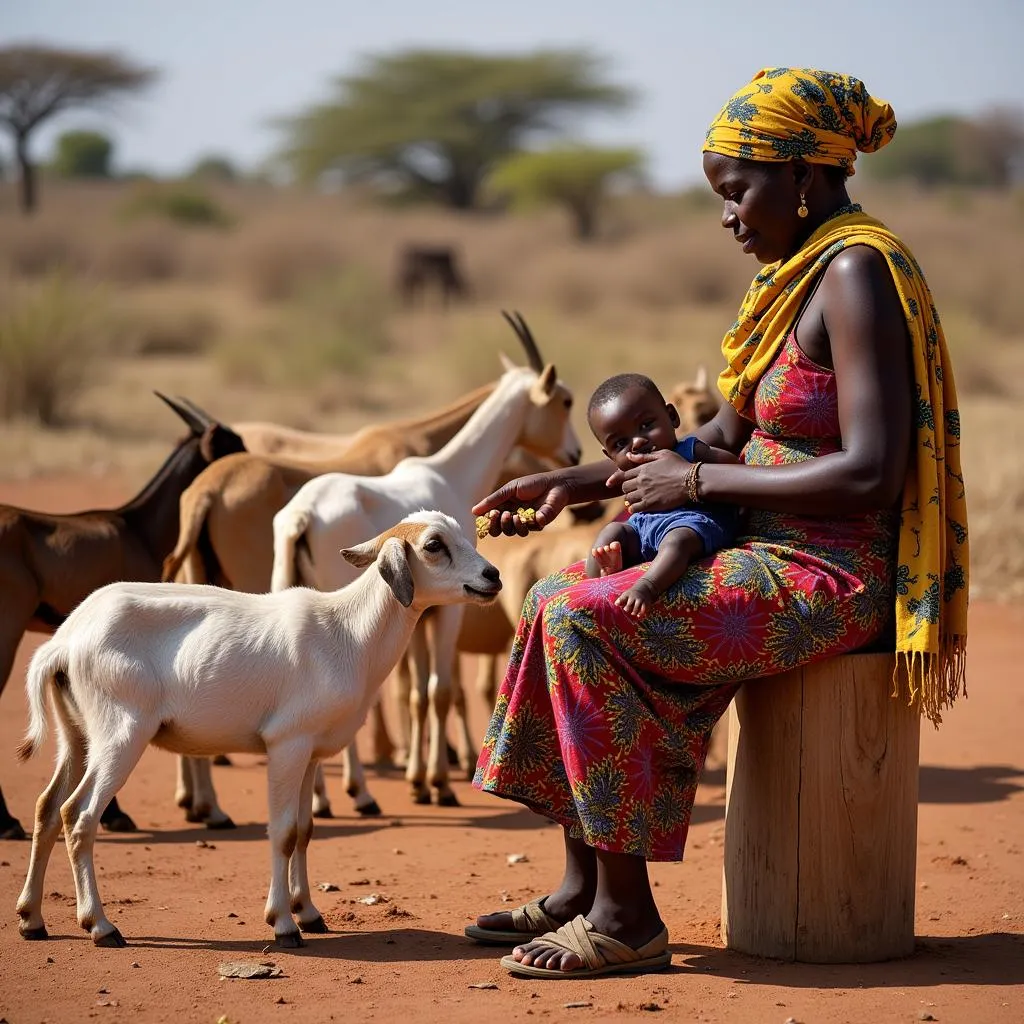Understanding African Currency Exchange Rates
Navigating the diverse landscape of African currencies can be a complex task. With over 50 countries, each boasting its own economic realities, the African Currency Exchange Rate landscape offers a unique set of considerations for travelers, investors, and businesses alike.
Factors Influencing African Currency Exchange Rates
Several key factors contribute to the fluctuations observed in African currency exchange rates:
- Commodity Prices: Many African economies rely heavily on the export of raw materials like oil, gold, and agricultural products. Fluctuations in global commodity prices can significantly impact currency valuations.
- Political Stability: Political instability, including elections or policy changes, can introduce volatility in the market, affecting investor confidence and exchange rates.
- Economic Performance: A nation’s economic health, reflected in its GDP growth, inflation rates, and foreign investment inflows, plays a pivotal role in determining its currency’s strength.
- Monetary Policy: Central banks across Africa manage interest rates and money supply to control inflation and stabilize their respective currencies.
The Role of the US Dollar
The US dollar holds a dominant position in global trade, impacting African currencies significantly. Most African nations export goods and services priced in US dollars. Consequently, a stronger US dollar can make imports more expensive, potentially driving inflation and weakening local currencies.
Popular African Currencies and Their Exchange Rates
While the African continent boasts a multitude of currencies, some stand out due to their economic influence and trading volumes:
- South African Rand (ZAR): As a leading economy in Africa, the South African Rand holds significant weight and is often viewed as a barometer for regional economic performance.
- Nigerian Naira (NGN): With a large population and significant oil reserves, the Nigerian Naira garners attention from investors and traders alike.
- Kenyan Shilling (KES): Recognized for its relative stability and a growing economy, the Kenyan Shilling plays a vital role in East African trade.
Navigating Currency Exchange in Africa
Understanding the nuances of African currency exchange rate dynamics is crucial for anyone conducting business or traveling within the continent. Here are some essential tips:
- Research Before You Go: Stay updated on the latest exchange rates for the specific countries you plan to visit. Numerous online resources and financial websites provide real-time information.
- Shop Around for the Best Rates: Exchange rates can vary significantly between banks, exchange bureaus, and hotels. Compare rates to ensure you get the most value for your money.
- Consider Local Payment Methods: Many African countries are transitioning towards digital payment systems. Explore local mobile payment options, which can offer competitive exchange rates and added convenience.
Conclusion
The African currency exchange rate landscape presents both challenges and opportunities. By understanding the factors driving currency fluctuations and adopting smart financial strategies, travelers and businesses can navigate this complex terrain effectively. Remember to stay informed, compare rates, and embrace local payment solutions for a seamless financial experience in Africa.
FAQs about African Currency Exchange Rates
1. What is the strongest currency in Africa?
The strength of African currencies fluctuates, but historically, currencies like the Botswana Pula, Seychelles Rupee, and Libyan Dinar have demonstrated relative stability and high value.
2. Where can I find the best exchange rates in Africa?
Avoid exchanging money at airports or hotels, as they often offer less favorable rates. Look for reputable banks or exchange bureaus in major cities for competitive rates.
3. Is it better to exchange currency before or after arriving in Africa?
Exchanging a small amount before your trip for immediate expenses is advisable. However, you might find better rates once you arrive and compare options.
4. Can I use US dollars in African countries?
While the US dollar is widely accepted in some African nations, it’s essential to confirm its usability and exchange rate beforehand.
5. What are some tips for managing money while traveling in Africa?
Inform your bank about your travel plans, carry a mix of cash and cards, and be cautious of ATMs in remote locations.
For further insights on African currencies, you might find these articles helpful:
- African currency vs Indian rupees
- Indian rupee to South African currency
- ADC African Development Corporation share price
Need assistance with African currency exchange or financial matters?
Contact us:
Phone: +255768904061
Email: [email protected]
Address: Mbarali DC Mawindi, Kangaga, Tanzania
Our dedicated customer support team is available 24/7 to assist you.

